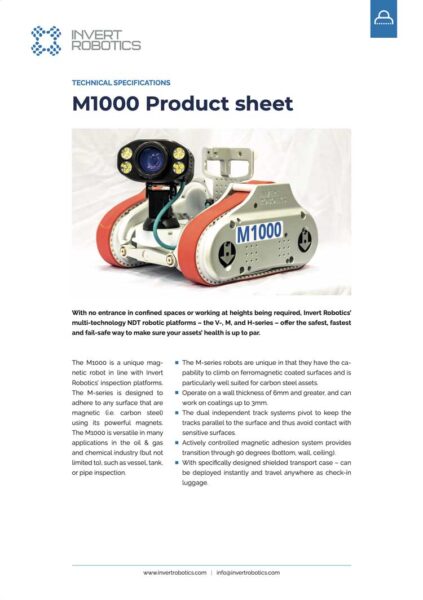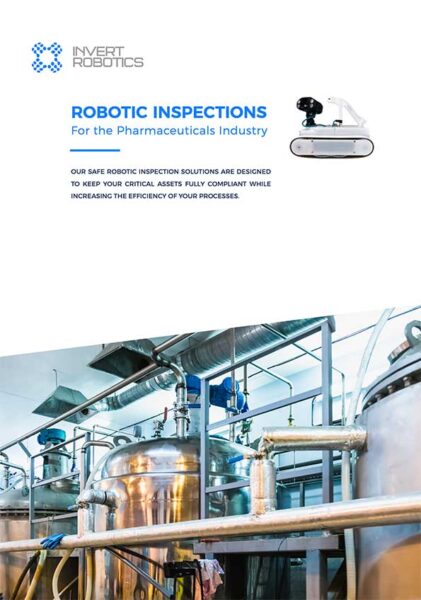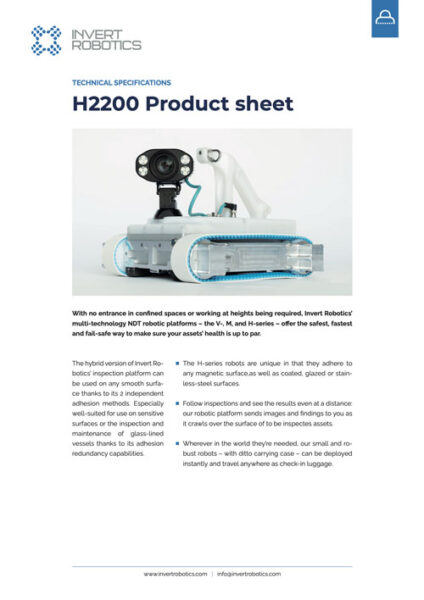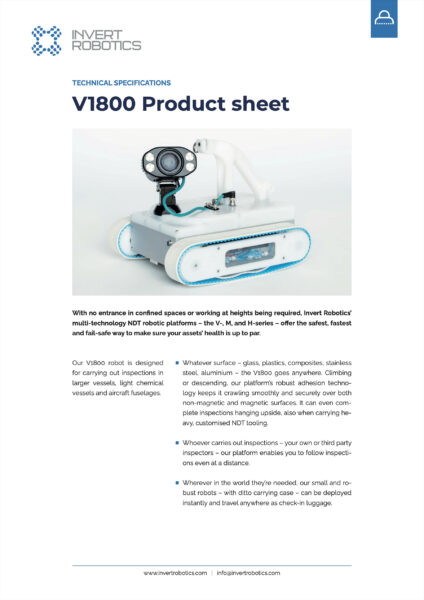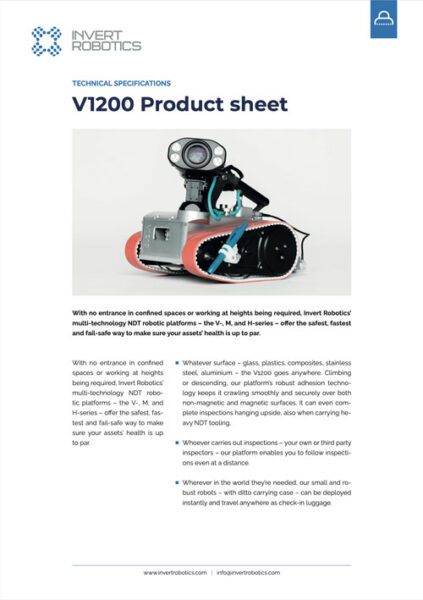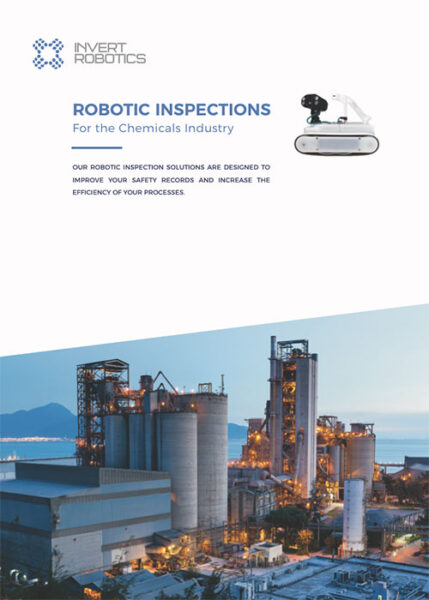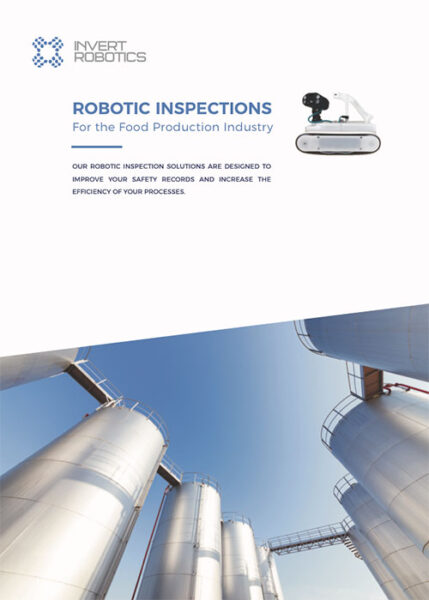Success in Europe due to significant improvement over competitors in terms of time, quality and cost
Invert Robotics provides non-destructive inspection services using mobile climbing robots.
The proprietary robotic platform can be used for the inspection of mission and business
critical assets in the dairy, food and beverage, aviation, petrochemical and industrial
chemical markets.
The robotic inspection solution allows clients to manage and minimise their exposure to risk, be it risk of harm to employees/contractors using manual inspection techniques, risk of unplanned production
downtime or risk of product/environmental contamination due to inadequate inspection quality.
Invert Robotics’ climbing robots enable precise, accurate and safe remote inspection of non-ferromagnetic surfaces such as stainless steel, carbon fibre, aluminium and glass. The robots are equipped with high definition cameras and other sensor technology that allow equipment to be assessed for cracks, defects and malfunctioning components.
Defects invisible to the naked eye, that are not yet a problem, can be detected allowing for more precise planning of maintenance work and capital expenditure.
Inspectors are fed real-time video during the inspection that allows immediate and highly accurate analysis. An automated report is delivered immediately to clients and a formally reviewed report is delivered within 3 days of an inspection.
A spin out of New Zealand’s University of Canterbury in 2011, Invert Robotics technology was developed by founder and Chief Technical Officer James Robertson and his team, who transformed the initial concept into a viable product.
“Invert’s climbing robot platform is the first in the world to enable the remote inspection of non-magnetic surfaces and offers a safe and efficient alternative to traditional manual inspection techniques such as scaffolding and rope access,” says Robertson. “Conventional maintenance typically requires a technician to physically enter and/or traverse the asset to visually inspect it and either identify defects or confirm working order. This process is time consuming, inefficient, prone to human error and can deliver low quality data, whilst also being a hazardous work practice.
“Invert displaces these human inspection methods enabling remote inspection of critical assets in an efficient and safer manner, as well as providing more consistent and scientifically based results. In fact, our robot operators stay safely on the ground at all times and we can often perform an inspection in half the time.
“Our robotic technology also offers a number of advantages over drone inspection which is a relative newcomer to the market. The primary advantage is that by being in contact with the surface we are inspecting, our robots can utilise a range of sensor technology like ultrasonic crack and thickness testing, or eddy current testing.
Drones simply can’t do this and the robots don’t have any of the stability or battery life issues that go hand-in-hand with drones. The other major advantage is that our robots can operate in areas drones can’t, for example, secure airspace at airports or in poor weather conditions. As a result, we are finding the robots are desirable in a number of industries.”
Invert’s robotic inspection solutions are already being used by the major Australian and New Zealand dairy companies such as Fonterra, Synlait and Murray Goulburn and are attracting interest from the food and beverage manufacturing industry globally with companies such as FrieslandCampina and Heineken adopting the technology.
“We are in the final stages of deals with an international airline and a large aircraft maintenance organisation. And we have our sights on façade cleaning [glass-covered sky scrapers], energy, petrochemical and mining industries – all of whom use large, mission critical, non- magnetic assets,” says Invert Robotics Managing Director Neil Fletcher.
European operations are expected to be the lynchpin for the company, which hopes to report a quadrupling of revenue in the 2017/18 financial year, just as it did in 2016/2017.
The company has opened an office in the Netherlands and is poised to open premises in Germany and Denmark to enhance its Christchurch head office operations.
Fletcher attributes the company’s success to date to a combination of internal expertise and market conditions in Europe.
“We’ve been able to demonstrate a point of difference over our competitors in terms of time, quality and cost,” he says.
“Demand for the robot in Europe has been particularly strong partly due to a stricter adherence to health and safety regulations there but also for our ability to have mission-critical assets back on line sooner.
The product represents a significant innovation in a market where consumers are always looking for new technology and future benefits,” Fletcher says.
Operating a business from New Zealand, when most of its growth and activity in Europe is a challenge.
“We are lucky to have a phenomenal team who collectively advance the company by identifying strategic customers and winning them over with our cutting-edge technology.
“This has been invaluable because a challenge for us in the past has been getting non-believers to even take a look at our robot – many didn’t believe it could stick to surfaces, let alone move smoothly along them.
“Once people see our robot in operation, they are quickly converted. The accuracy, efficiency and the value-adding environmental and safety benefits of robotic technology make it an obvious choice as consumer demand for product safety, brand integrity and transparency grow,” Fletcher says.


